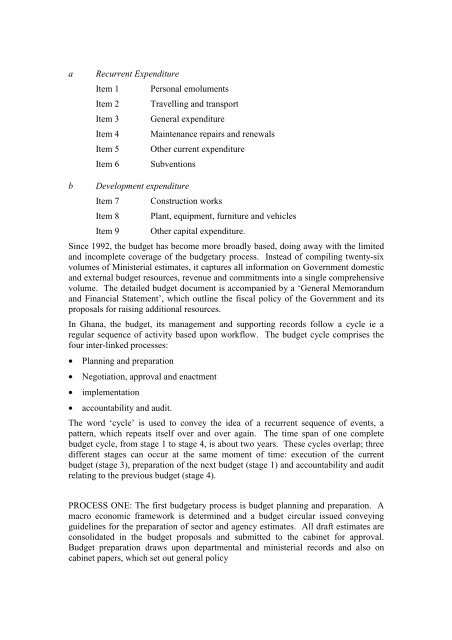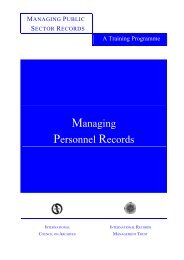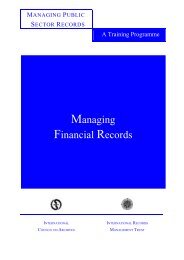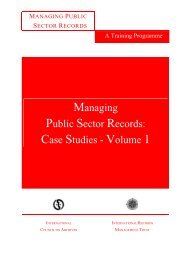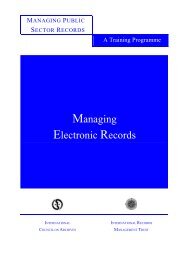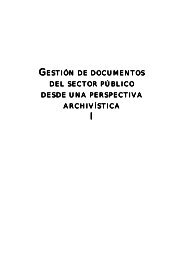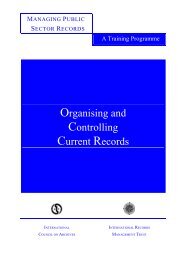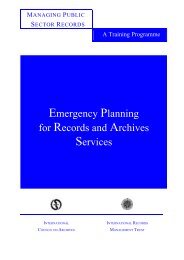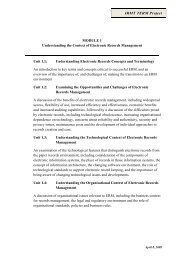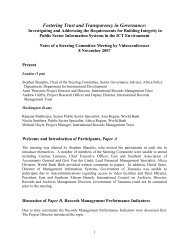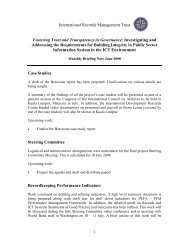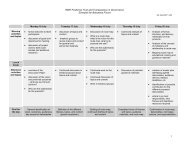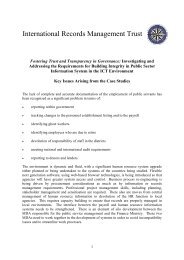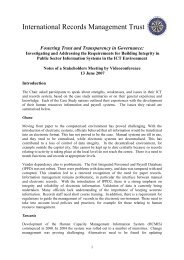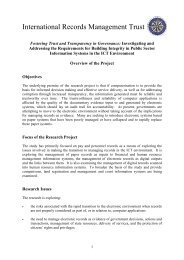managing public sector records: a study programme - International ...
managing public sector records: a study programme - International ...
managing public sector records: a study programme - International ...
You also want an ePaper? Increase the reach of your titles
YUMPU automatically turns print PDFs into web optimized ePapers that Google loves.
a Recurrent Expenditure<br />
Item 1 Personal emoluments<br />
Item 2 Travelling and transport<br />
Item 3 General expenditure<br />
Item 4 Maintenance repairs and renewals<br />
Item 5 Other current expenditure<br />
Item 6 Subventions<br />
b Development expenditure<br />
Item 7 Construction works<br />
Item 8 Plant, equipment, furniture and vehicles<br />
Item 9 Other capital expenditure.<br />
Since 1992, the budget has become more broadly based, doing away with the limited<br />
and incomplete coverage of the budgetary process. Instead of compiling twenty-six<br />
volumes of Ministerial estimates, it captures all information on Government domestic<br />
and external budget resources, revenue and commitments into a single comprehensive<br />
volume. The detailed budget document is accompanied by a ‘General Memorandum<br />
and Financial Statement’, which outline the fiscal policy of the Government and its<br />
proposals for raising additional resources.<br />
In Ghana, the budget, its management and supporting <strong>records</strong> follow a cycle ie a<br />
regular sequence of activity based upon workflow. The budget cycle comprises the<br />
four inter-linked processes:<br />
• Planning and preparation<br />
• Negotiation, approval and enactment<br />
• implementation<br />
• accountability and audit.<br />
The word ‘cycle’ is used to convey the idea of a recurrent sequence of events, a<br />
pattern, which repeats itself over and over again. The time span of one complete<br />
budget cycle, from stage 1 to stage 4, is about two years. These cycles overlap; three<br />
different stages can occur at the same moment of time: execution of the current<br />
budget (stage 3), preparation of the next budget (stage 1) and accountability and audit<br />
relating to the previous budget (stage 4).<br />
PROCESS ONE: The first budgetary process is budget planning and preparation. A<br />
macro economic framework is determined and a budget circular issued conveying<br />
guidelines for the preparation of <strong>sector</strong> and agency estimates. All draft estimates are<br />
consolidated in the budget proposals and submitted to the cabinet for approval.<br />
Budget preparation draws upon departmental and ministerial <strong>records</strong> and also on<br />
cabinet papers, which set out general policy


